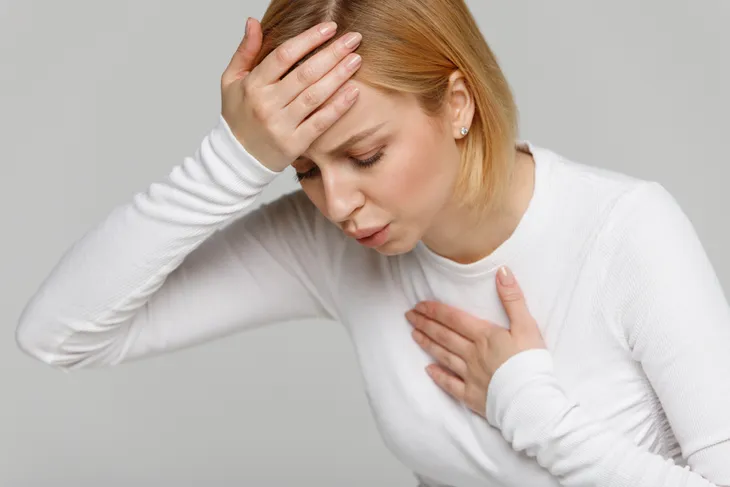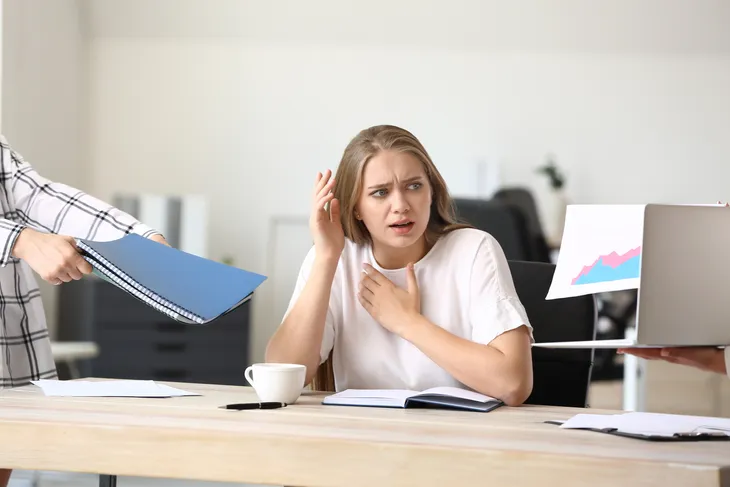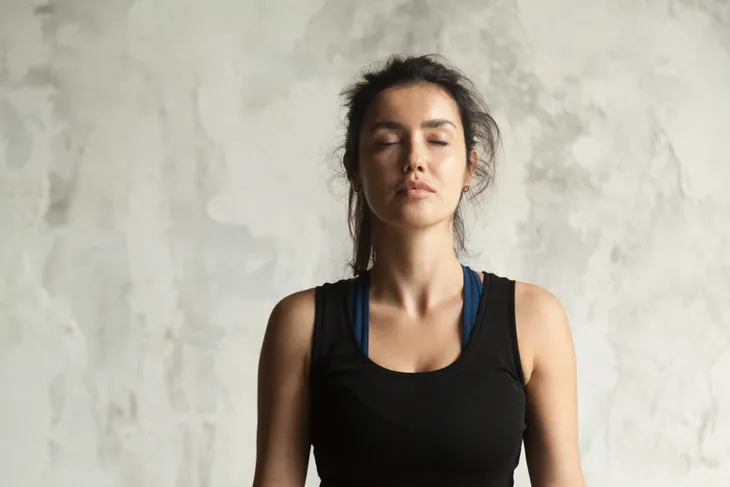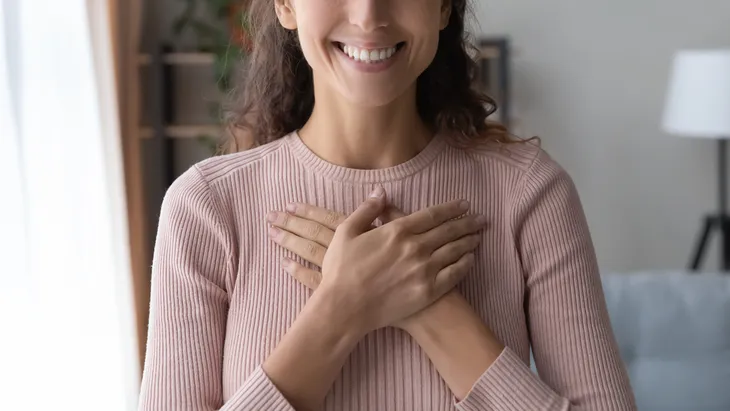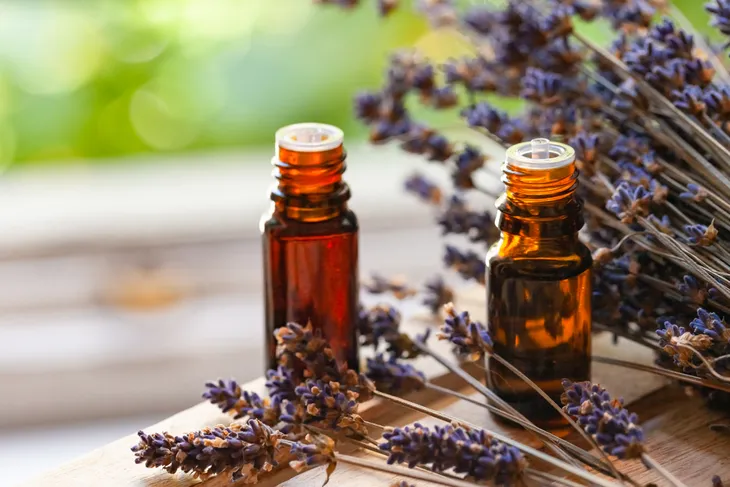- 35-percent of the population has experienced a panic attack at least once in their lifetime.
- Panic attacks can occur without warning and are often debilitating for the individual.
- To stop a panic attack in its tracks, close your eyes, focus on your breathing, and practice grounding and mindfulness techniques.
- If you experience a panic attack make sure you see your doctor right away as the symptoms can be similar to other serious health problems, such as a heart attack.
Your heart starts pounding. You feel like you can’t breathe. Your surroundings start spinning. These are all common symptoms of a panic attack. If you experience panic attacks, you should know you’re not alone. In fact, up to 35-percent of the population has experienced a panic attack at least once.
Unfortunately, panic attacks can strike without warning. They can be completely debilitating too. This is why it’s important to know what to do when they occur to help reduce the severity of the attack or to stop it completely. To help you manage these dreadful attacks, we’ll take a closer look at what panic attacks are, what causes them, and what you can do to stop a panic attack in its tracks. Let’s get into it!
What Is a Panic Attack?
A panic attack, also called an anxiety attack is a “brief episode of intense anxiety, which causes the physical sensations of fear,” explains Better Health. The attack can last anywhere from a few minutes up to half an hour, and they occur unexpectedly even when there is no obvious threat present.
Panic attacks can create a range of symptoms from physical to emotional. Some physical symptoms may include rapid heartbeat, shortness of breath, sweating, trembling, and dizziness. Emotional symptoms can include feelings of fear, worry, anxiety, and impending doom.
What Causes Panic Attacks?
Medical professionals aren’t quite sure what causes panic attacks exactly, however, some factors may play a role. The Mayo Clinic says genetics, major stress, a sensitive temperament, and changes to brain function may play a role in the development of panic attacks or panic disorder.
The source notes even though panic attacks may “come on suddenly and without warning at first,” over time, they’re often triggered by certain situations. This is why it’s important to learn your triggers if you suffer from frequent panic attacks and seek out proper treatment.
Now that we have a better understanding of what panic attacks are and why they happen, let’s take a look at the steps you can take to stop a panic attack in its tracks.
Find a Quiet Place and Close Your Eyes
Some panic attacks are triggered by overwhelming situations. Environments with lots of sights and sounds can make the panic attack worse. If you feel a panic attack coming on and are overwhelmed by your environment, the first thing to do is find a quiet, peaceful spot.
If you can’t escape your environment, close your eyes. Putting yourself in a quiet place will help you relax and focus on your mental state, breathing, and other coping strategies.
Focus on Your Breathing
Panic attacks can cause shortness of breath and in turn, make the feelings of anxiety even worse. This is why it’s so important to focus on your breathing once a panic attack begins.
To do this, focus on breathing slowly and deeply, paying attention to each breath. Visualize breathing deeply from your belly and filling your lungs slowly.
Medical News Today says the 4-7-8 breath technique may be helpful. The source says to do this technique, “the person breathes in for 4 seconds, holds the breath for 7 seconds, then exhales slowly for 8 seconds.”
Grounding and Mindfulness
Panic attacks can make you feel detached from reality which is why it’s important to ground yourself and practice mindfulness after the onset of an attack. To do this, focus your attention on the present and acknowledge your emotional state. Doing so can help bring you back to reality.
One way you can practice mindfulness is through meditation. This may help reduce stress and help you relax. The 5-4-3-2-1 method is another technique you can try which we’ll explain in detail next.
Practice the 5-4-3-2-1 Method
Panic attacks can overtake your senses and the 5-4-3-2-1 method is a great grounding technique that can help you feel attached to reality. “It helps direct the person’s focus away from sources of stress,” says Medical News Today.
According to the source, here’s how you can practice this method:
- Look at 5 different objects and think about each one for a moment.
- Listen and pick out 4 distinct sounds.
- Touch 3 objects and think about how they feel — the texture, temperature, what they’re used for, etc.
- Identify 2 smells, such as the smell of laundry, perfume, coffee, the air, etc.
- Lastly, name 1 thing you can taste.
Focus On an Object
Another way you can help ease a panic attack is by focusing all of your attention on an object. Pick one object in your line of sight and observe everything about it. Make a mental note of what you see including its colors, shape, patterns, and anything else interesting you notice.
Medical News Today explains, “focusing on one stimulus can reduce other stimuli.” If you have recurring panic attacks you may want to consider carrying a familiar object with you that you can concentrate on when you feel a panic attack coming on.
Picture a Happy Place
You may also find that guided imagery techniques can help ease your panic attack. This study investigated whether guided imagery or nature-based guided imagery would be effective at reducing anxiety. The research says that both methods (spending time in nature and visualizing nature) can help manage anxiety.
With this in mind, when you feel a panic attack starting, close your eyes and try to picture a happy place such as your home, the beach, the mountains, or anywhere else that brings you happiness. Some individuals find it helpful to imagine smelling the scent of fresh trees or digging their toes into the warm sand. Nonetheless, whatever place you think of, make sure it’s calm, quiet, and relaxing.
Repeat a Mantra
A mantra is a phrase, word, or sound that is repeated. Saying the mantra out loud or in your head can help you concentrate and focus on your breathing so that you can get out of the panic attack.
The mantra can be as simple as “this too shall pass,” or something else that brings you comfort. Healthline lists other mantras that you may find helpful during a panic attack. They include:
- One day at a time.
- I’ll cross that bridge when I come to it.
- I am anchored like the roots of a tree.
Consider Essential Oils
If you experience frequent panic attacks you may want to consider carrying essential oils with you. Medical News Today explains a “soothing scent can help relieve anxiety by tapping into the senses, helping the person stay grounded and giving them something to focus on.”
One common essential oil that may help encourage relaxation is lavender. You can simply hold the oil under your nose and inhale gently. Some individuals like to dab the oil on a piece of cloth to smell.
If you don’t like the smell of lavender there are other relaxing oils you can try too. These include chamomile, lemon, or bergamot orange.
Light Exercise
It’s no secret that exercise is important for your overall health, but it may also help reduce anxiety over time which in turn, may help reduce the severity or frequency of panic attacks. This is because “moving around releases hormones called endorphins that relax the body and improve mood,” says Medical News Today.
While exercise may be a great way to help reduce or prevent panic attacks, it can also help you when you’re experiencing one. The source says something as simple as walking can help remove you from the stressful environment. Focus on the rhythm of walking and your breathing to help stop the panic attack.
Muscle Relaxation Techniques
Panic attacks can also cause muscle tension and one way you can help ease the tension (and the panic attack) is by practicing muscle relaxation techniques. When your mind feels your body relaxing, you may find other symptoms of the panic attack may begin to subside too.
One technique you can try is Progressive Muscle Relaxation (PMR). The source says, “in progressive muscle relaxation exercises, you tense up particular muscles and then relax them, and then you practice this technique consistently.”
To perform this technique start by breathing in and tensing a muscle group for 4 to 10-seconds. Then completely relax the muscle group and breathe out. Relax for another 10 or so seconds before moving onto another muscle group.
When to See a Doctor
Panic attacks can be immensely uncomfortable and unsettling for the individual experiencing them. In some cases, prolonged panic attacks can be debilitating and can prevent an individual from leaving their home entirely for fear of experiencing one. This is why it’s important to seek medical help.
Panic attacks can also have similar symptoms to other serious health problems such as a heart attack which makes it even more important to inform your doctor right away. They can evaluate you, rule out other serious health conditions, and then help you get the treatment you need.

